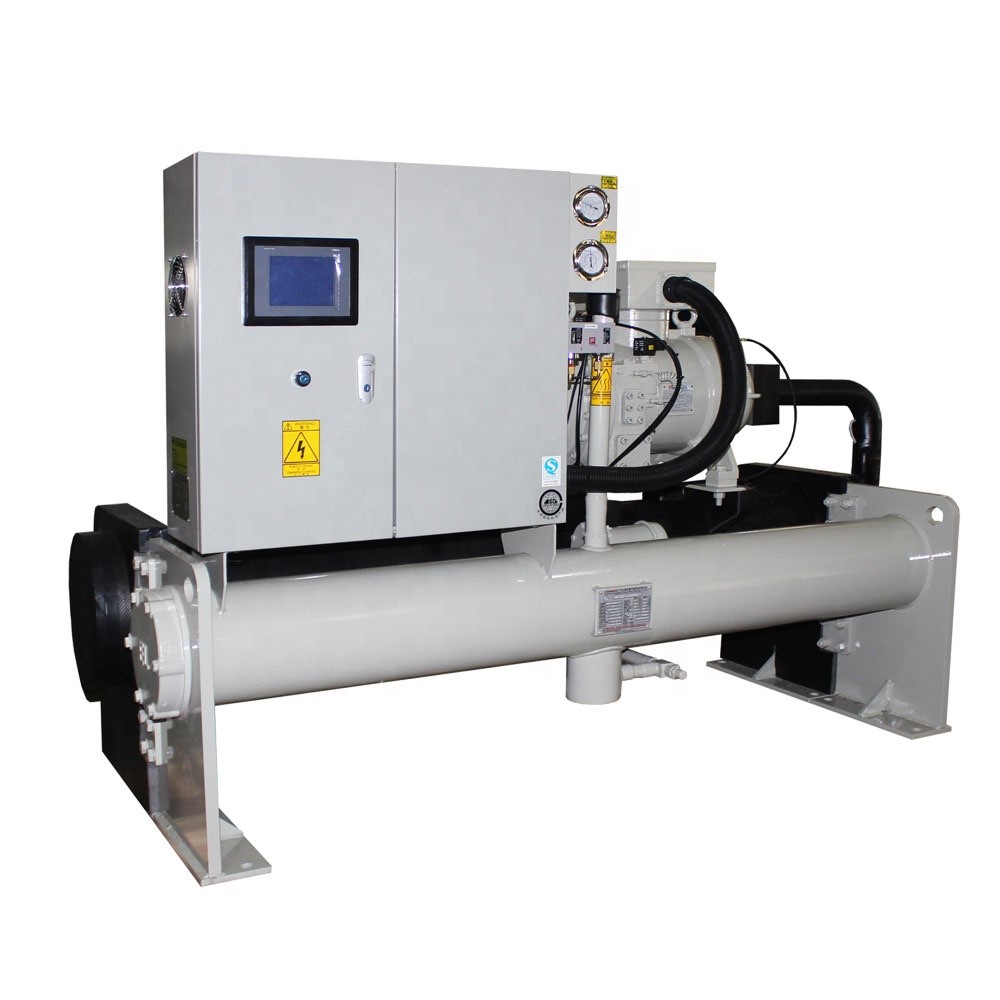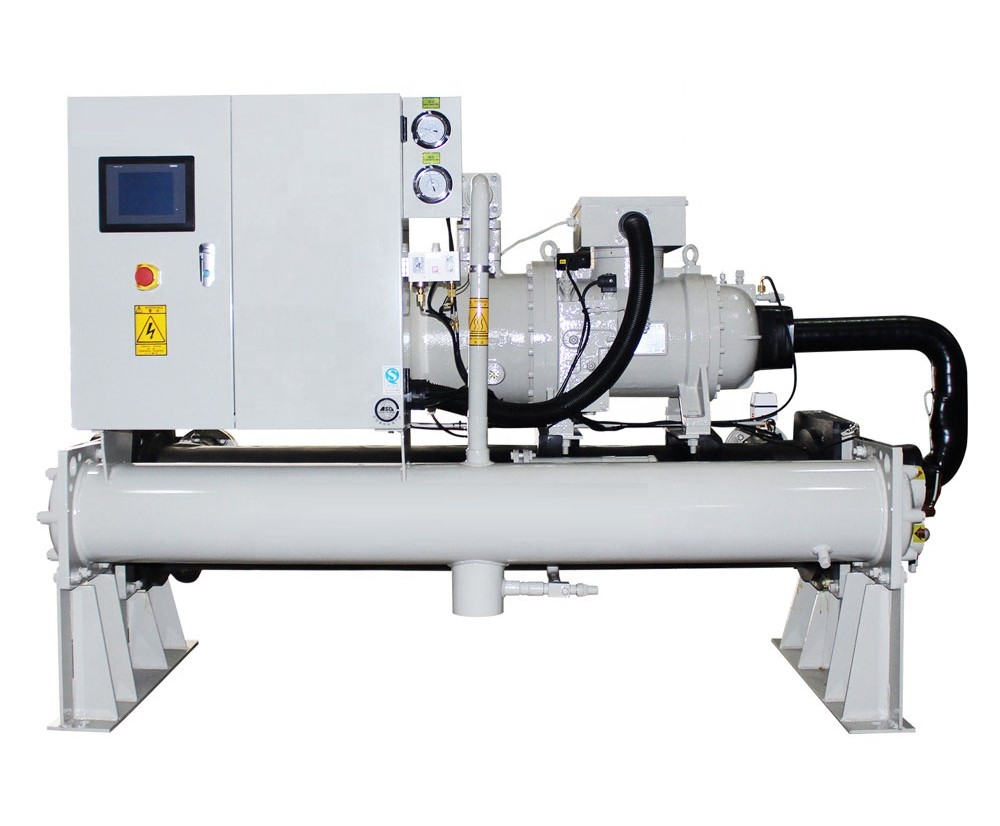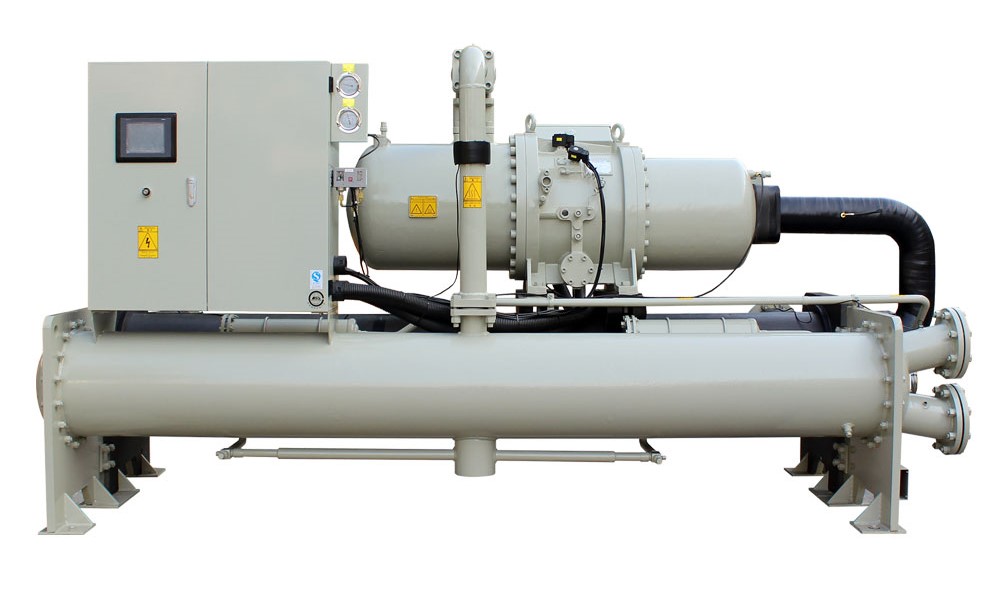Description
A chiller is a machine that removes heat from a liquid via a vapor-compression or absorption refrigeration cycle. This liquid can then be circulated through a heat exchanger to cool equipment, or another process stream (such as air or process water). As a necessary by-product, refrigeration creates waste heat that must be exhausted to ambience, or for greater efficiency, recovered for heating purposes.
Chilled water is used to cool and dehumidify air in mid- to large-size commercial, industrial, and institutional facilities. Water chillers can be water-cooled, air-cooled, or evaporatively cooled. Water-cooled systems can provide efficiency and environmental impact advantages over air-cooled systems.
In industrial application, chilled water or other liquid from the chiller is pumped through process or laboratory equipment. Industrial chillers are used for controlled cooling of products, mechanisms and factory machinery in a wide range of industries. They are often used in the plastic industries, injection and blow molding, metal working cutting oils, welding equipment, die-casting and machine tooling, chemical processing, pharmaceutical formulation, food and beverage processing, paper and cement processing, vacuum systems, X-ray diffraction, power supplies and power generation stations, analytical equipment, semiconductors, compressed air and gas cooling. They are also used to cool high-heat specialized items such as MRI machines and lasers, and in hospitals, hotels and campuses.
Chillers for industrial applications can be centralized, where a single chiller serves multiple cooling needs, or decentralized where each application or machine has its own chiller. Each approach has its advantages. It is also possible to have a combination of both centralized and decentralized chillers, especially if the cooling requirements are the same for some applications or points of use, but not all.
Decentralized chillers are usually small in size and cooling capacity, usually from 0.2 to 10 short tons (0.179 to 8.929 long tons; 0.181 to 9.072 t). Centralized chillers generally have capacities ranging from ten tons to hundreds or thousands of tons.
Chilled water is used to cool and dehumidify air in mid- to large-size commercial, industrial, and institutional (CII) facilities. Water chillers can be water-cooled, air-cooled, or evaporatively cooled. Water-cooled chillers incorporate the use of cooling towers which improve the chillers’ thermodynamic effectiveness as compared to air-cooled chillers. This is due to heat rejection at or near the air’s wet-bulb temperature rather than the higher, sometimes much higher, dry-bulb temperature. Evaporatively cooled chillers offer higher efficiencies than air-cooled chillers but lower than water-cooled chillers.
Water-cooled chiller is typically intended for indoor installation and operation, and are cooled by a separate condenser water loop and connected to outdoor cooling towers to expel heat to the atmosphere.
Air-cooled and evaporative cooled chiller is intended for outdoor installation and operation. Air-cooled machines are directly cooled by ambient air being mechanically circulated directly through the machine’s condenser coil to expel heat to the atmosphere. Evaporative cooled machines are similar, except they implement a mist of water over the condenser coil to aid in condenser cooling, making the machine more efficient than a traditional air-cooled machine. No remote cooling tower is typically required with either of these types of packaged air-cooled or evaporatively cooled chillers.




Reviews
There are no reviews yet.